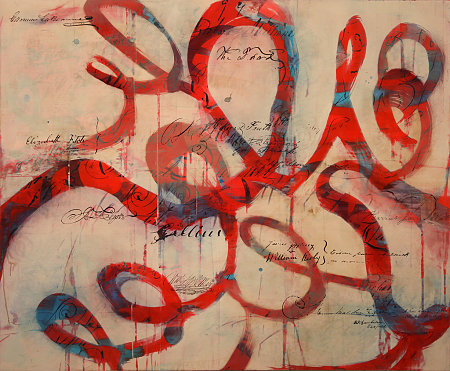
A Chance Conversation
Jacob’s Room and To the Lighthouse are unEnglish in an important sense—books out of the tradition that self-consciousness is how a novelist goes after a character. Both of these books have an ancient Greek literary quality in affirming that what we are, our identity, is very much a product of how we affect others. It’s more complicated than how we appear to others, though that is a part of it. In any case, we are not what we imagine ourselves to be. Jacob’s room at Trinity College is described, as is his room in London, and this literal sense is also part of what the book is about: Jacob is partly what he surrounds himself with, in the way of things or people or chosen experience. The main sense of the title, though, is the space Jacob occupies in the world and the minds of those who encounter him, as well as the absence he leaves when he’s dead. There are plenty of signals throughout that indicate that the book is moving toward Jacob’s absence: Descriptions end with graveyards or poppies; one begins, “The lamps of London uphold the dark as upon the points of burning bayonets”; and a would-be romance concludes, “And now Jimmy feeds crows in France and Helen visits hospitals.” But the dates and even Jacob’s last name ought to lead us to suspect how the novel will end. “Jacob Flanders, therefore, went up to Cambridge in October, 1906,” Woolf writes, and of course this puts him in his mid-twenties when the Great War begins and possibly in Flanders fields when it ends.
In To the Lighthouse, we barely have time to realize how important Mrs. Ramsay is to the well-being of all around her when Woolf suddenly announces her death. Then we get to see how things do not hold together without the linchpin she provided. The only character in the book who sees how vital Mrs. Ramsay was, the artist Lily Briscoe, liked to chide the older woman for her old-fashioned ideas of women’s places. But Lily realizes that Mrs. Ramsay arranged the world around her “like a work of art.” She brought people together; she created harmony, “making of the moment something permanent” in a way Lily would like to do with her painting.
*
Of course the real theater of contingency is one’s own experience. We all know our lives could have been very different, suddenly or over the course of years, but for some chances.
Early one summer morning when he was twenty-five, my son Dan woke us with a telephone call from Johnson City, Tennessee, near the border with North Carolina. Dan was in a hospital emergency room after being flown by a Medevac helicopter from an accident on Interstate 40. Dan had stopped at the scene and walked toward a car that had been hit head-on by a pickup truck going the wrong way on the interstate. Dan approached the car, which was in the passing lane and facing the side of the road. He walked around the car and up to the driver’s side window to see if he could help, and, at that moment, a semi-trailer truck, going the right way on the freeway, hit the car from the other side. Dan was thrown thirty feet across the highway median, and he was unconscious until the paramedics woke him.
Miraculously, he had no concussion, no broken bones, and no internal injuries. His eyeglasses had disappeared, and gradually he would see huge bruises develop that would highlight where his belt and the buttons of his shirt had been. He had been driving a rental car, which was towed from the scene and was now in a salvage yard, its battery dead. Dan had turned on the emergency blinkers when he pulled off the road; the semi driver, seeing the flashing lights, had moved into the passing lane to avoid the stopped car with its blinkers flashing and had hit the unlit car there before he could stop.
Unfortunately, such after-accidents are not uncommon. One of them crippled the writer Andre Dubus, but the usual outcome is the death of the Good Samaritan. As my wife and I drove toward Johnson City on I-40, we looked carefully for signs of the accident we knew had occurred somewhere in that stretch of road. Nothing marked the spot, an unmemorable place on the interstate, but we both had the same thought: It would have been memorable enough that we would never have forgotten it as long as we lived, had things gone less fortunately for Dan.
